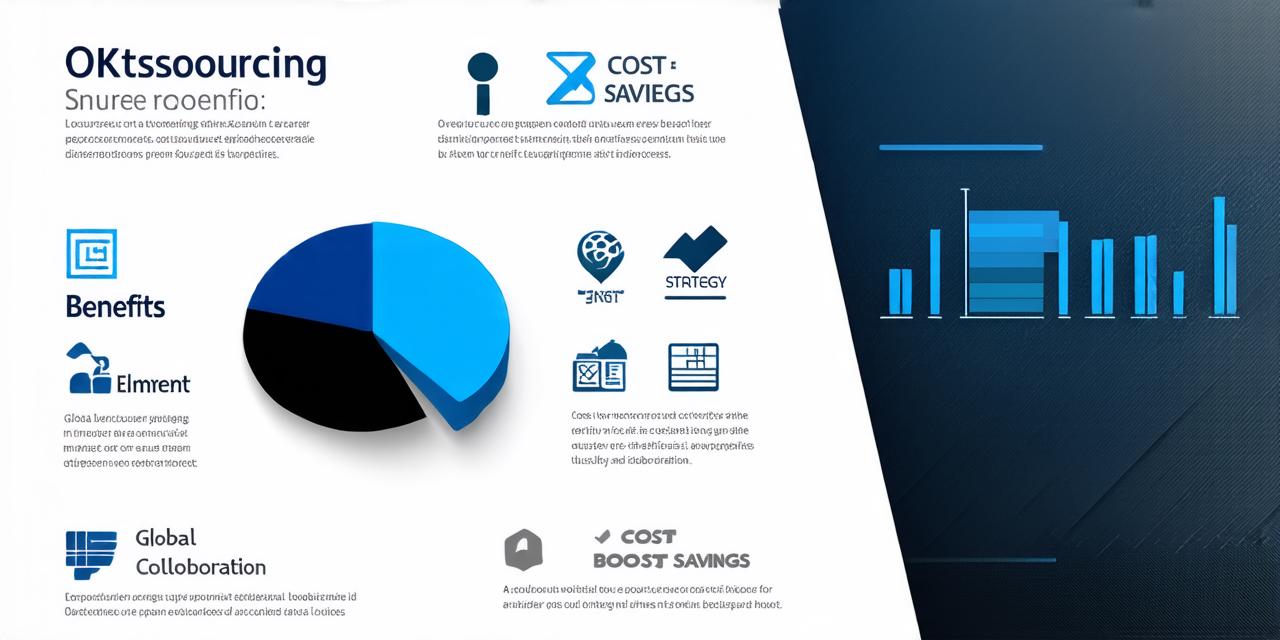Understanding Outsourcing: What Is It?
Here’s the corrected HTML code for the article:
In today’s fast-paced business world, outsourcing has become an increasingly popular strategy for companies looking to save time and money. But what is outsourcing exactly? In this article, we will explore the concept of outsourcing, its benefits, and how it works in practice. We will also delve into common misconceptions and provide real-life examples to help you understand the process better.
What is Outsourcing?
Outsourcing refers to the practice of hiring an external company or individual to perform a task or service that would otherwise be done in-house. This can include anything from administrative tasks like data entry and accounting, to more specialized services such as marketing, engineering, and software development.
Benefits of Outsourcing
There are many benefits to outsourcing, including cost savings, increased efficiency, and improved quality. Here are some of the most significant advantages:
-
Cost Savings
-
Increased Efficiency
-
Improved Quality
-
Flexibility
How Does Outsourcing Work?
Once a company has decided that outsourcing is the right solution for their needs, they will need to find a suitable partner to work with. This may involve researching and comparing different providers, as well as negotiating terms and conditions.
Once a provider has been chosen, the company will need to clearly define the scope of work and establish clear communication channels with the provider. This will ensure that both parties are on the same page and that expectations are met.
Throughout the outsourcing relationship, it is important for both parties to maintain open communication and regularly review progress to ensure that the project is staying on track and meeting the company’s needs.
Common Misconceptions About Outsourcing
Despite its many benefits, outsourcing is often misunderstood or misused by businesses. Here are some common misconceptions about outsourcing:
-
All outsourcing is offshoring
-
Outsourcing means losing control
-
Outsourcing is only for large businesses
Real-Life Examples of Outsourcing
To help you understand how outsourcing works in practice, here are some real-life examples:
-
A small marketing agency that lacks expertise in social media management might outsource this task to an external provider with specialized knowledge and experience in social media marketing.
-
A large retail company that wants to improve its online sales platform might outsource the development of a new e-commerce system to an external software development firm with expertise in this area.
-
An accounting firm that is struggling to keep up with the demands of a rapidly growing business might outsource some administrative tasks, such as data entry and invoicing, to an external provider with experience in these areas.

FAQs
Here are some frequently asked questions about outsourcing:
1. What types of tasks can be outsourced?
Any task that is not part of a company’s core competencies can potentially be outsourced, including administrative tasks, marketing, engineering, and software development.
2. How do I find the right provider for my needs?
There are many ways to find potential providers, including online research, industry associations, and referrals from other businesses. It is important to carefully vet each provider and negotiate terms that are mutually beneficial.
3. What is the difference between outsourcing and offshoring?
Outsourcing refers to any task that is performed by an external provider, regardless of location. Offshoring specifically refers to tasks that are performed in a different country, often for the purpose of taking advantage of lower labor costs.
4. How can I ensure that my outsourcing relationship is successful?
Clear communication, regular progress updates, and a commitment to mutual trust and respect are all important factors in ensuring a successful outsourcing relationship.
Conclusion
Outsourcing can be a powerful tool for businesses looking to save time and money while improving efficiency and quality. By understanding the benefits of outsourcing and how it works in practice, businesses can make informed decisions about when and how to outsource tasks. With careful planning and effective communication, outsourcing can help companies achieve their goals and stay competitive in today’s fast-paced business world.
